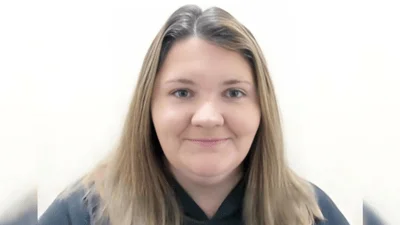Regina Robart, Director of the President's Office at Greenville College | https://www.greenville.edu/
Regina Robart, Director of the President's Office at Greenville College | https://www.greenville.edu/
This appropriation represents state-level funding authorized by lawmakers, reflecting what was approved in the budget, not necessarily disbursed. The funds cover only State of Illinois support and exclude federal, local, or other public sources.
Founded in 1892 by Stephen Morse, Greenville College states that its mission is: “Greenville University empowers students for lives of character and service through a transforming Christ-centered education in the liberal arts, science and professional studies.”
You can learn more about the organization at its website.
In its most recent IRS Form 990 filing filing for tax year 2024, the organization reported $41,589,400 in total revenue. Of that, $457,832 came from government grants including federal, state, or local sources, making up 1.1% of total revenue.
The nonprofit listed $4,725,500 in contributions overall. It also reported $136,870 in non-cash contributions, such as donated goods or services, and $4,244,260 categorized under other contributions, which may include restricted donations, pledges, or bequests.
At the beginning of 2024, Greenville College had $71,799,500 in assets. By the end of 2024, that figure had changed to $100,573,000, indicating a significant 40.1% growth in overall holdings.
According to its filing, public funding to Greenville College declined in the last year, falling from $7,853,770 in 2023 to $457,832 in 2024—a decrease of 94.2% year-over-year.
However, a Chicago City Wire analysis found that IRS filings frequently contain discrepancies when compared with publicly disclosed government grant reports and budgets.
Greenville College is one of hundreds of nonprofits across Illinois that receive substantial support from state taxpayers while also fundraising privately.
In 2025, Illinois lawmakers introduced House Bill 1266, also known as the Department of Government Efficiency (DOGE) Act. The proposal would create a new oversight body within the Office of the Auditor General tasked with identifying cost-saving measures, reviewing agency performance, and advising on audit priorities. If passed, DOGE could bring additional scrutiny and performance evaluation to taxpayer-funded organizations.
According to ProPublica, Illinois has more than 78,000 active tax-exempt organizations, including nearly 60,000 classified as charitable nonprofits. In their most recent IRS filings, these groups reported a combined revenue exceeding $156 billion.
| Term | Name | Title |
|---|---|---|
| 2024-2024 | Suzanne Allison Davis | Cfo |






 Alerts Sign-up
Alerts Sign-up